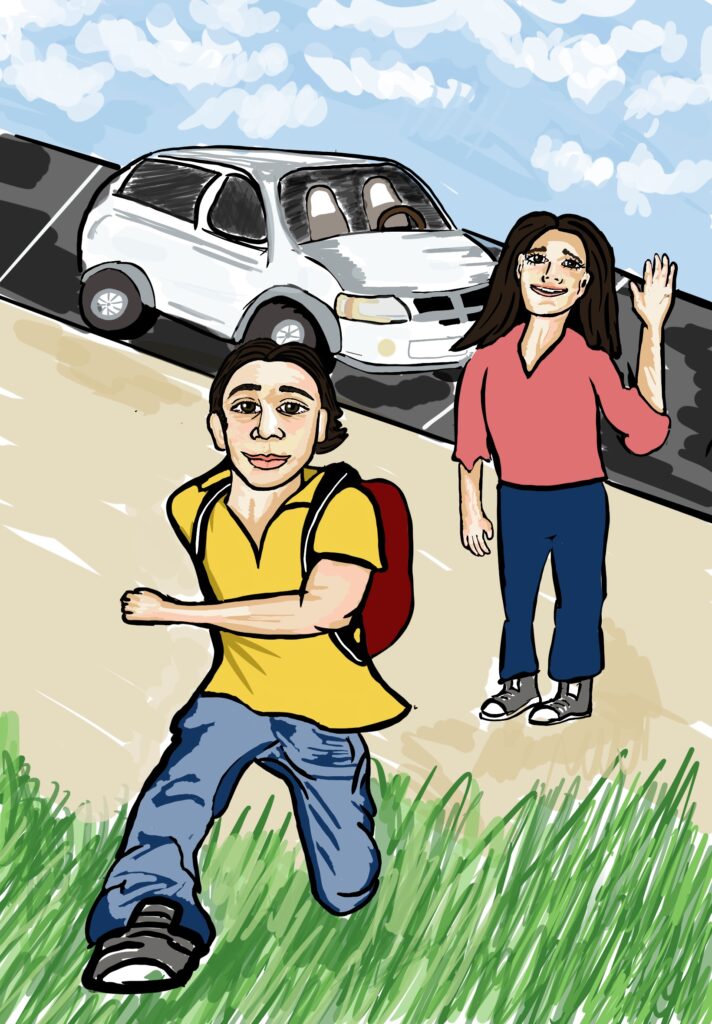
Graphic by Melody Qian ’24
Every morning at 7:22 a.m., I climb into the car and head to school. The 30-minute commute has several downsides, but none more stressful than being late to class.
The late policy should not be the same for both day students and boarding students. A day student is less in control of their punctuality than a boarder, usually relying on others to get to school. Unpredictable weather and traffic are the most frequent, yet few teachers seem to take this into consideration.
In the past, I have been marked late for arriving three or four minutes past the start of class, which I find rather unfair. With all this in mind, I think day students should be granted more flexibility regarding lateness. I propose that day students should receive an extra 10 minutes to get to class. Therefore, if issues with commuting arise, day students will not have to worry about being marked late.
If it’s noticed that students are regularly using the 10 minute grace period, say, more than twice in a given week without a plausible reason, the student will have to meet with their adviser to figure out a solution. In order for students to arrive more than 10 minutes late, and not receive an absence, they would have to send evidence — for example, of the traffic in front of their car — that they are experiencing uncontrollable difficulties during their commute.
Additionally, if students arrive more than 20 minutes late due to commuting problems, their absence should be excused. However, recognizing that this creates the potential for these privileges to easily be abused, there will be parameters set up to ensure that students aren’t using these privileges as an excuse to be late to their first period classes.
While arriving late to school is a common struggle among day students, submitting work on time is typically just as difficult. I spend one hour on the road every day. On days when I take the train home, the travel time extends to almost two and a half hours. Understandably, many teachers do not recognize the physical toll of commuting and assign work that day students might not have time to complete.
I think the School should grant day students more leniency when it comes to submitting assignments. A special “day student extension” could manifest in various ways. An extension for a homework assignment could be two hours longer and an extension on a project could be a day later.
At non-boarding schools, every student commutes to school every morning and their schedule functions normally. What makes the commute to Choate different, though, is that the systems that dominate the School were made, almost exclusively, with borders in mind. Simply put, Choate is not a place optimally designed for those who do not live on campus. Teachers should take into consideration the day student perspective in creating assignments and due dates, and be more understanding of their commuting students.




